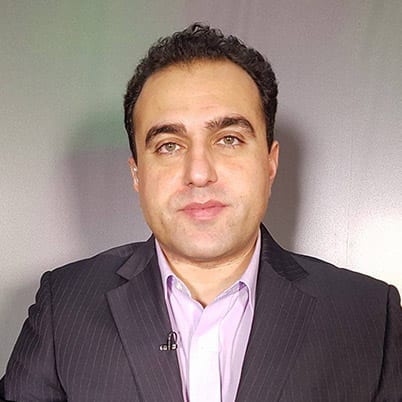The recent sharp increase in tension between Iran and the United States has prompted a flurry of reporting and commentary talking up the prospect of a military confrontation between the two powers.
Much of the analysis is focussed on the Persian Gulf – and specifically the Strait of Hormuz – as the potential site of a military clash between Iran and the US. On the face of it, these dire predictions seem credible, especially against the backdrop of escalating tensions in the Gulf, with the United Arab Emirates accusing a “state actor” of sabotaging four tankers off its coast last month.
Media scaremongering aside, the probability of a direct Iran-US military clash is very low, at least for the foreseeable future. Nevertheless, the current trajectory suggests a continually upward trend in tension with ramifications for peace and security across the Middle East.
No country is more affected by the increasing tension than Iraq, where both Iran and the US wield considerable influence. Sustained deterioration in Iran-US relations is very bad news for Iraq, whose fragile stability is dependent on an uneasy détente between the Iranians and the Americans inside Iraq.
Iraq as mediator?
As tensions between Iran and the US spiked last month – as demonstrated by the US decision to augment its military presence in the region – Iraqi Prime Minister Adel Abdul Mahdi offered to mediate between the longstanding opponents, going as far as describing it as Iraq’s “national duty”.
This proactive Iraqi approach surprised some observers, not least because since the Anglo-American invasion of Iraq in 2003 the country has played a generally passive role in regional affairs. This was in part a reflection of the country’s internal chaos, as evidenced by multiple insurgencies against American and British occupiers, and latterly an existential struggle against the main legacy of the occupation, namely the Daesh phenomenon.
READ: Despite US sanctions, Iran goods pervade Iraq market
Abdul Mahdi’s proactive position must be seen in the context of Iraq trying to re-assert itself on the regional stage following more than fifteen years of speedy decline and extreme introversion. But just how realistic is this approach, especially in view of the Iraqi government’s relatively weak position in the face of the country’s centrifugal forces, namely the Kurdish north, lingering pockets of Sunni Arab opposition in the west and an increasingly self-confident Shia south?
This question becomes even more vexed when we consider that all three centrifugal forces are exploited by the US and Iran, not only to augment their respective presence inside Iraq but more importantly to undermine each other’s positions.
Thus, for instance, the US has tried hard to turn the Kurdish north, as embodied by the Kurdistan Regional Government, into a bastion of influence, and as a check on Baghdad’s reach and power. In addition, notwithstanding the negative experiences of the long-running Iraqi insurgency, the US views restive pockets of Sunni Arab anti-government resistance (particularly in the Anbar and Nineveh provinces) as potential allies against a pro-Iranian central government in Baghdad.
For its part, Iran has patiently developed a vast network of patronage and influence in the Shia-dominated south and centre of the country, to the extent that Iran’s political and economic reach in Iraq eclipses American influence.
Proxy warfare?
Despite Abdul Mahdi’s apparent sincerity, Iraq cannot act as an effective mediator between Tehran and Washington. Baghdad’s inherent weakness, and more importantly the peculiar balance of power between Iran and America in Iraq, renders mediation extremely difficult.
Indeed, the only time Iran and America managed to lower tensions inside Iraq sustainably was when their representatives met directly back in 2007. Furthermore, there is already a well-established regional mediator in the form of the Sultanate of Oman, whose services have been utilised repeatedly by the two powers to both reduce general tension and to resolve specific disputes.
Iraq is central to the Iranian-US regional rivalry in so far as it embodies its general shape and intricacies. For a start, Iran and America have sufficient interests in common inside Iraq in order not to clash directly. Foremost amongst these is the fight against international terrorism as embodied by Daesh and its allies. The same thing can be said in respect of the wider region, namely that the two powers have a shared interest in maintaining a semblance of stability.
OPINION: Iraq’s neutrality in the midst of US-Iran tensions is crucial
Ultimately, though, Iranian and American interests diverge sharply in Iraq (as they do across the region) on account of Iran’s desire to deepen its status as the region’s indigenous dominant power at the expense of American hegemony and neo-imperialism.
As tension mounts in the months and years ahead, instead of clashing directly (which both powers identify correctly as self-defeating), the Iranians and Americans are likely to step up proxy warfare, with Iraq once again becoming the central battleground. The only difference is that unlike ten years ago, this time around Iran is in a much better position to inflict decisive blows on the US posture in Iraq and, by extension, on America’s entire regional presence.
The views expressed in this article belong to the author and do not necessarily reflect the editorial policy of Middle East Monitor.

![Prime Minister-designate of Iraq, Adel Abdul Mahdi [ACMCU/Twitter]](https://i0.wp.com/www.middleeastmonitor.com/wp-content/uploads/2018/10/Adel-Abdul-MahdiDomACLKXgAYnz2f.jpg?fit=920%2C613&ssl=1)

![Iran Deal - Cartoon [Sabaaneh/MiddleEastMonitor]](https://i0.wp.com/www.middleeastmonitor.com/wp-content/uploads/2018/05/9-5-2018.jpg?resize=920%2C571&ssl=1)






